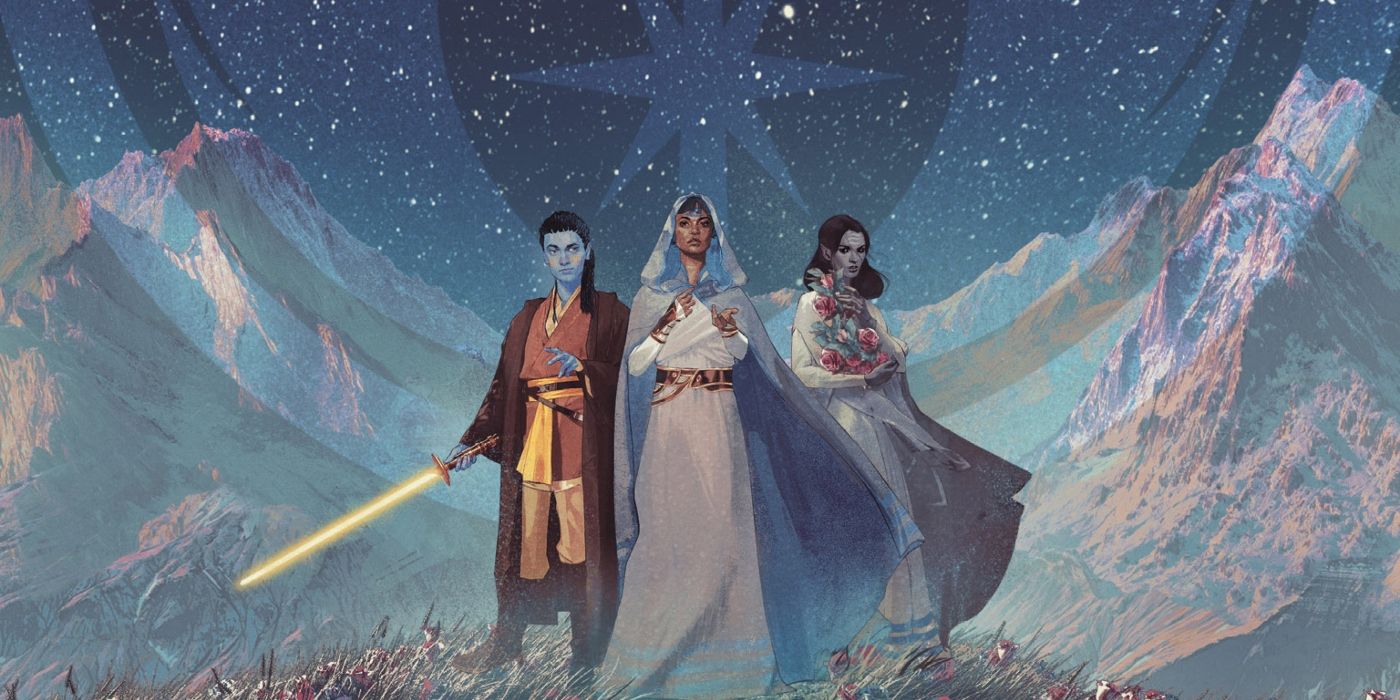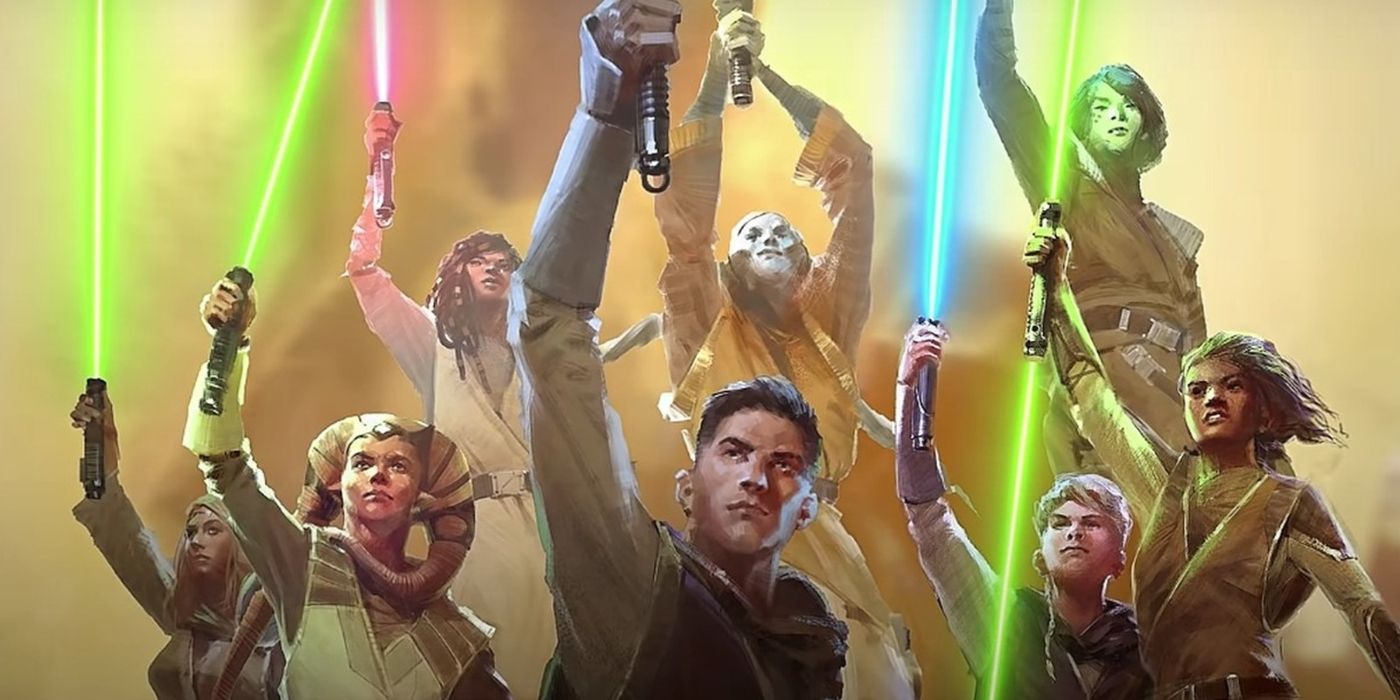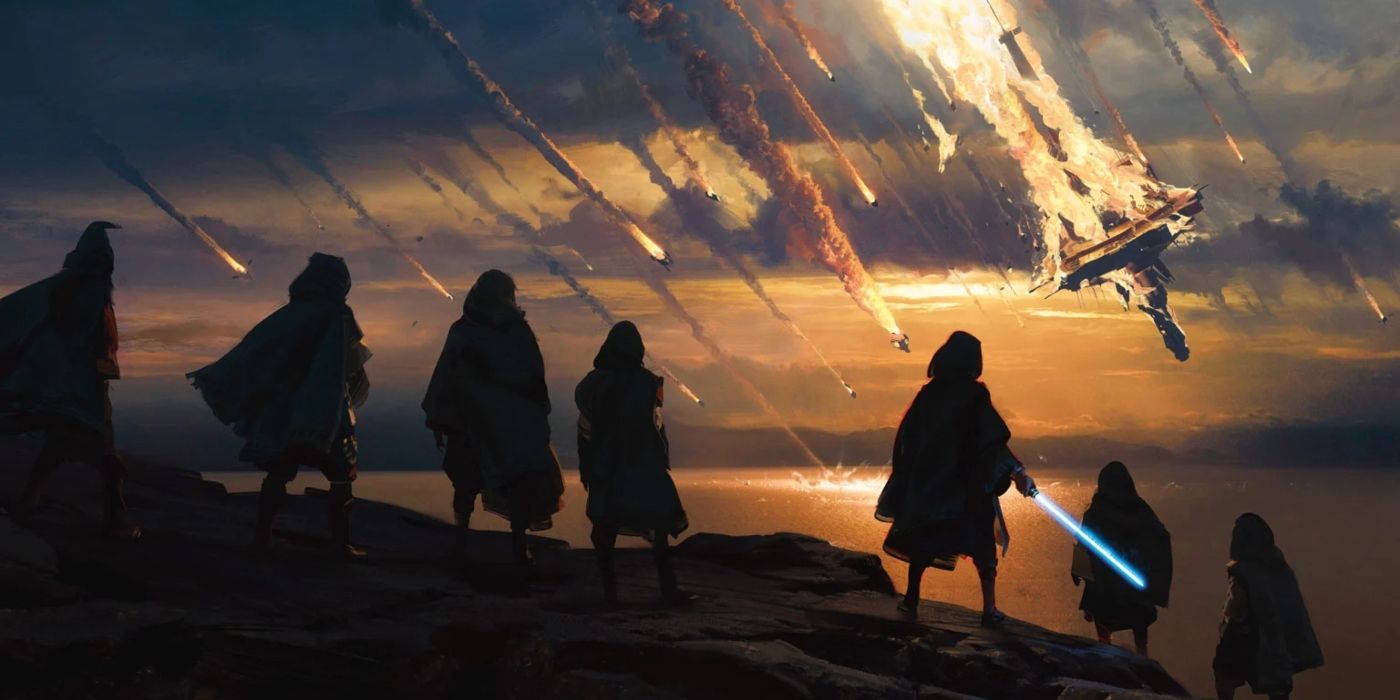Since launching at the tail end of 2020, Star Wars: The High Republic has presented fans with an exciting new wave of stories from that famous galaxy far, far away. But instead of focusing on the regular era and traditional characters of the franchise, The High Republic serves as a banner for stories that occurred two centuries before the nominal "present" of the Star Wars franchise. This gives creators a chance to introduce scores of new characters, freed from the potential limitations of fitting into an already crowded timeline. The stories in this era have succeeded both critically and commercially. As they approach the next phase of the line, known as "Quest of the Jedi," the five architects of The High Republic are still helming the ship as it delves onward into this new chapter.
While attending Star Wars Celebration, CBR sat down to talk with the creators behind the High Republic line of books and comics -- Charles Soule, Justina Ireland, Daniel José Older, Claudia Gray, and Cavan Scott. They discussed the freedom that comes with crafting stories in a fresh unexplored era of Star Wars, which characters have caught them the most by surprise during the line's first phase, and what has them most excited for the future.
CBR: First off, congratulations on both the upcoming second act of High Republic stories and on the reception you've all been receiving here at Star Wars Celebration.
Charles Soule: Unless I'm wrong, the panel had a 4000-person capacity -- and that room was full. That's just under half of the entire Jedi Order.
Justina Ireland: Stop it, you're going to make me throw up.
Daniel José Older: It's amazing. I think we're all pretty blown away. I think we all came with excitement and joy. We knew it was gonna be cool, [but] I think the numbers took all of us by surprise.
Cavan Scott: Everything else going forward is going to be compared to that moment.
The universe of Star Wars is so massive, and you can do so much with it in terms of genre, tone, or style. Now that you've all spent some time in this corner of the universe, which elements of writing stories set in the High Republic have excited you the most?
Ireland: You can kill anybody. When I was writing Spark of the Resistance, I knew Ray had to get to Episode IX. When you're reading in between the events of the movies and stuff like that, certain characters are gonna survive. That robs a little tension. And so, as a writer, you have to work a little harder to keep the tension there. But everyone's fair game in High Republic, as we've shown.
Older: It's so funny because I too love murder, but I was gonna say the opposite -- in that we don't have Order 66 hanging over everybody's head. The fact that we have these Jedi and we know that they're not necessarily going to die is actually incredible.
Gray: For me, I think the thing that I enjoy the most is the different characters of the Jedi Order. It's less hierarchical, it's less centered, and it's more flexible. And I think getting to see several ways of being a Jedi and see that be accepted and understood -- to me, that has been one of the most enjoyable things both to write and to read in everybody else's stories.
Scott: The scope of it. We had this plan but it's still surprising us... I don't know if anyone expected Lourna Dee to become such a big character. She was going to be a part of it, but she has taken on a life of her own. Personally, I never thought I'd be writing a father/daughter relationship, which is what I've done with Sskeer and Keeve. When I started, I identified with Keeve, and now I absolutely identify with the "Dad" who... Most of his story is about him living up to his daughter and trying to say, "I need to be good because I have to look after you." And as a Dad of teenage daughters, that's pretty important. It's something I never set out to write. That's what I love about the High Republic. It surprises me every day when I'm writing it.
Soule: What I would say is my favorite thing about [The High Republic] is the whole thing of it. And what I mean by that is... You look at like, say, the Empire State Building. A cathedral may be a better analogy. And you're like, "How could that possibly be made?" And the way it's made is by a group of people making decision after decision, with emphasis and applied effort, for decades. We have made this world. I mean, we didn't make Star Wars, but we made this era, we've defined it, we filled it with detail, we filled it with people.
We've also built this incredible engine, which is the story we're telling. Seeing some of those beats play down, whether it's Starlight falling... We're pressing a button, and we're like sending it out, and we know what's going on, we know what we've built. We know what's going to happen. We can see things that we have lined up ready to go, and it's invigorating to think that we made this machine, and it's gonna go on after what we saw in that room.
Why is it important for stories under the Star Wars banner to push new boundaries and go in new directions, as the High Republic stories have allowed?
Older: I think that element has always been in Star Wars. It's always been a question of balance. In the past, Star Wars has been hilarious, it's been whimsical, [and] it's been very dark. I mean, there's fratricide on different levels [and] all those complicated father/son relationships. What's so cool is now we have father/daughter relationships... I think we're always echoing and in conversation with [the past], and when you're in conversation, you also push forward. You're not always looking back and staying in the same place. I think that's the movement -- and you see it, across the board, with Star Wars right now.
Gray: I think one of the very magical things that made the first film, A New Hope, such a sensation was that you knew that that world had history. [The world of Star Wars] always felt bigger than even this story that was being told about Luke Skywalker. This thing had a history, and you were incredibly interested to learn more about it. And that's a huge thing. Like people were always wondering originally, what were the Clone Wars, and they had to wait to find out. But those were the things that made you feel like there's so much more here -- so you want to keep spreading out and exploring and seeing what else is out there. There are literally like, 10 millennia that are out there to have fun with.
Scott: It's a stewardship thing as well. You know we want Star Wars to continue from a purely selfish point of view. I want there to be more Star Wars because I love Star Wars. And I don't want it to be something that is caught in amber and always will be that thing that we had in the '70s and the '80s. There was that period of time when we didn't have Star Wars when Ewoks had come and gone. And then [in] the early '90s, when the books started coming out, suddenly Star Wars was alive again. And it's keeping that life going and pushing it into different directions [with] one foot in the past so you can always say where we came from. That's the bedrock -- but always pushing it forward because every generation needs their own Star Wars.
What are you most excited for fans -- and as fans yourselves -- to see coming from the next phase of High Republic?
Ireland: I'm actually really excited to welcome the new writers. I mean, a lot of our storytelling is our storytelling. But bringing in fresh perspectives has really opened up the story -- I wrote [the upcoming The High Republic: Path of Deceit] with Tessa Gratton, who's my friend. We've written other things together, but the perspective she brought to the High Republic was completely different from the others. She brought all this new stuff, so it's just nice to have that invigoration like fresh blood.
Star Wars: The High Republic #1 goes on sale Oct. 2022, from Marvel Comics.



